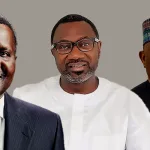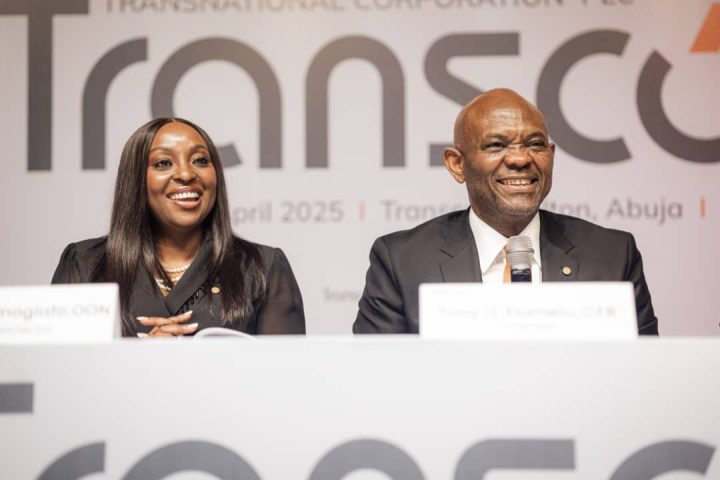Looking at the recent comments of some financial experts, there is this impression that the recent naira redesign policy of the Nigeria’s federal government was not actually meant to punish Nigerians. The public in general appeared to believe this when former President Muhammadu Buhari, bolstered by economic analysts, linked the naira redesign policy with crime fight, reducing inflation and preventing electoral fraud. Why won’t Nigerians jump at any policy aimed at reducing their nightmare in the mentioned areas?
According to the Council on Foreign Relations (CFR) and Nigeria’s National Security Tracker, 4,545 people were kidnapped in 2022, yielding a daily average of 13 people. The 2019 general elections had witnessed over one thousand court cases. As of September 2022, 80% of the cash in circulation was outside the banking system, meaning that out of the 3.2 trillion naira in circulation, 2.73 trillion naira circulated outside the banking system. So much of this money was trapped by politicians, business people in the informal financial sector, kidnappers and violent non-state actors.
Join our WhatsApp ChannelREAD ALSO: CPPE’s Muda Yusuf Tackles CBN’s Emefiele Over Naira In Circulation Claim
Whether the hope of Nigerians about the cashless policy and naira redesign was justified after the elections is now in the realm of debate, especially with the comments of the Joint Election Observer Mission on INEC’s lack of transparency. The over 600 pre-election and over 100 post-election court cases emanating from the 2023 presidential and gubernatorial elections have made INEC to budget over N3 billion (three billion naira) to fight these court cases.
So, judging by the strange ordeal of Nigerians courtesy of the cash crunch, it becomes even harder to justify the naira redesign policy. Lest we forget, some state governors like Kaduna’s el Rufai had opposed the policy, frontally telling their subjects not to part with their cash. The governors came face to face with treason accusations, yet some would argue that the governors were vindicated going by the apparent fiasco that the policy has become.
In fact, after the federal government seemed to have surrendered, many complex expert financial analysis as well as whimsical, angry and elementary appraisals have been done on the redesign policy. Most of the arguments exposed the federal government as unthoughtful and ill-prepared in the whole episode.
I believe that mixing politics with the naira re-design was largely responsible for the fatal hitches it had hit. Clear measures like a free press, an impartial Economic and Financial Crimes Commission (EFCC), and an independent judiciary can force political office holders to be more prudent with public funds. Notably, too, implementing a cashless policy at the same time as redesigning the currency was curious. Inability to shield the banks against pressures from moneybag politicians and the ordinary citizens was a guarantee for policy failure. Yet, these were the more immediate causes of the botched redesign, nay, cashless policy. There are therefore pre-existing fundamental questions, some of which may not make any financial and economic sense; yet the ordinary Nigerian needs some answers.
How can Nigeria go cashless with its current state of internet services? What is the safety status of the several, emerging unpopular online platforms offering financial transactions, some of which appear to be working better than the well-known deposit money banks? Who really owns them and where is the assurance that Nigeria’s online baking is not about to be thrown into the control of faceless, imaginary and unaccountable Ponzi experts? How should the country shield its financial system from the imperialist control of the international finance system to the detriment of local content? How can the informal financial sector be engrafted to the formal banking system to ensure that the groundnut seller does not die because of a cashless economy? What is the relationship between the attempt at naira redesign and the effort at cashless policy?
The first implication of these questions is that some kind of social economics, or enlightenment, needs to interface with the hard-faced micro and macro-economic and fiscal policy. Nigeria’s federal government should first make effort to give Nigeria a definable economy. An over-borrowing, import dependent system is hardly an economy. A trading system filled with whole sellers and retailers of foreign products can barely be a serious financial system. An economy filled with job-seeking and frustrated self-financing entrepreneurs will find it difficult to work with a banking system that milks them further. A system where governors are above the law, with no one asking questions about public funds will lead to one thing: illegal stashing of cash in underground tanks. A society where the media workers are tied to the apron strings of politicians and business moneybags cannot have a robust, accountable political, legal and economic system.
My point is: Nigeria’s economy needs to have a definable identity, with every Nigerian methodically connected to the economy to make a cashless policy imaginable. Nigeria is putting the cart before the horse by throwing the financial system into the virtual world, where the majority of the citizens have no real connection. As at 2022, internet penetration in Nigeria stood at 38% of the population. According to the Alliance for Affordable Internet (A4AI), 81% of Nigerians do not have access to meaningful internet in terms of the quality and affordability of services measured using four indicators, namely, 4G connection, ownership of a smartphone, unlimited broadband, and connection at home, workplace, place of study and daily use. Based on this, only 6.6% of the rural areas and 16.4% of the urban area have meaningful internet reach. Those with the real connection, including fraudsters and the imperial global financial powerhouses may hijack it as currently being experienced in the energy, and natural resource sectors.
Unfortunately, the founder and Group Managing Director of Interswitch Ltd., Mr Mitchell Elegbe said that poor online banking services experience by customers before and during the cash crunch in Nigeria was partly a result of the mass exit of tech talents from the banks. This, to us, is even the crux of the cashless conundrum.
I am, therefore, not oblivious to the avenues created by the central bank to cushion the effects of naira shortages such as internet banking apps, USSD, and e-Naira. Many Nigerians now know about them, but are not empowered to use them owing to the demon called network in the Nigerian parlance. This is why I totally agree with the Executive Director of UAC Nigeria Plc, Dr. Joe Dada, that security, trust and adequate infrastructure are necessary conditions for achieving a successful cashless economy. It was the cost and absence of these essentials that almost snuffed the life out of over 26% of small and medium scale enterprises in Nigeria during the cash crunch.
Dr Mbamalu is the publisher of Prime Business Africa.
Follow on Twitter: @marcelmbamalu
















Follow Us